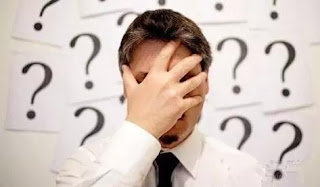The Symptoms and Treatments of Hypertensive Renal Disease
Hypertensive renal disease is also called primary hypertension, which causes benign arteriole nephrosclersis (also called high blood pressure, renal arteriolar sclerosis) and malignant arteriolar nephrosclerosis. They corresponds to clinical manifestate diseases.
The symptoms of hypertensive nephropathy
The main symptoms of hypertensive nephropathy are swirl, headache, nausea, vomit, inappetence, abdominal distension, weak, soreness of waist, chest distress, shortness of breath, palpitation, pretige and the limbs swelling, hypopsia, epistaxis, etc. Minority of the patients don’t have the clinical symptoms above. While some hypertensive nephropathy patients need to be discovered by auxiliary examination.
The high blood pressure kidney diseases patients are rarely bloated. The early symptoms of the diseases are: enuresis nocturna increasing, then the urine protein appears, it is usually below 2.0g in daily life.
The treatments of hypertensive renal disease
The initial syndrome are relatively light: people who have early, light high blood pressure and normal glucose tolerance of the routine urine test can be treated by non-drug treatments, which are keeping good mood, losing weight, salt restriction, liquor restriction, practicing qigong and shadowboxing, appropriate physical exercises,etc.
1. The available antihypertensive drugs, which have no obvious symptoms: diuretic, receptor inhibitor, ca-antagonist, angiotensin2 angiotensin receptor blocker, and beta blockers, calcium ion antagonist. Among them calcium antagnonisis, ACEI are more beneficial to heamodynamics in the kidney, ACEI is better than other antihypertensive drugs to reduce urine protein that control the blood pressure effectively to be normal or be close to normal(18.7/12kPa, 140/90mmHg), and can prevent, stablize or delay the damage of the high blood pressure of the kidneys.
2. Patients with complications: Patients always with hyperlipemia, diabetes and hyperuricemia should be homologous treated. At the same time, using anti-platelet aggregation and adhesive medicines, such as dipyridamole, aspirin may have the function of preventing the kidney from being arteriosclerotic.
3. Patients who are relatively severe in the later period: Maglignancy renal arteriolar sclerosis patients’ kidney are worsen rapidly in a short time. If combined the hypertensive encephalopathy, vision that drops rapidly, and intracranial hemorrhage and other medicines that cannot be taken, the patients can be intravenously administrated, they usually use sodium nitroprusside and do all they can to control the blood pressure between 12 to 24 hours. Long press must lower the blood pressure rapidly, which suit the primary treatments of malignant hypotension.



评论
发表评论